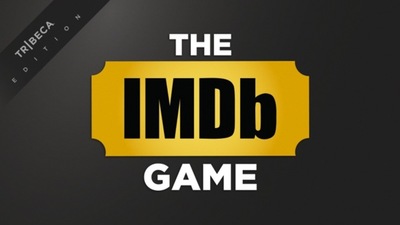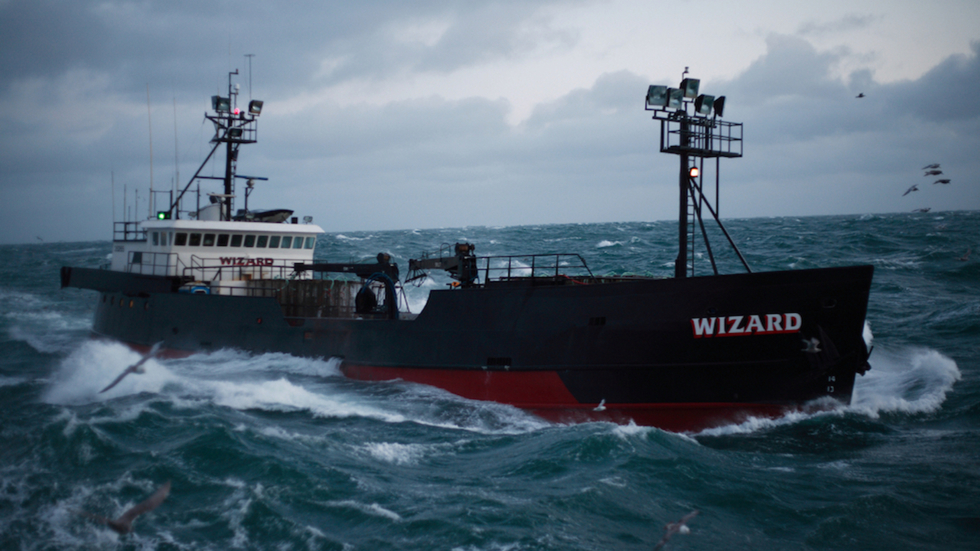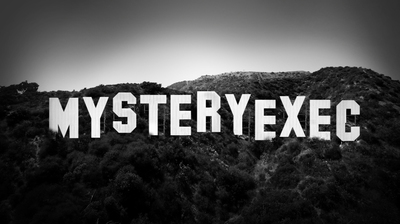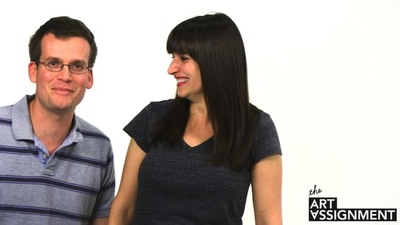
BY ADAM EPSTEIN |
SNL Editor Adam Epstein: Why I Can't Be a Hater
We live in the golden age of shitting on things. And I'm missing out on the party like a schnook. If you make things, it's so hard to hate things.

(Welcome to the second edition of Editor at Large, a new column by 'SNL' editor Adam Epstein.)
I wish I could be a hater. I want to be blatantly dismissive of things that I deign to be crap, making biting, snarky comments about the hacks that hacked this hacky hack together, all while musing about how I would have done things differently -- if only they used this piece of music or found a grittier location, or hired Will Arnett as the male lead -- then it would have been something worth watching. Or, Will Arnett is the male lead? I'm sorry, I forgot, of course he is -- it's a show on television.
It's become almost impossible for me to truly dislike filmed entertainment that operates at a certain level of crafted professionalism.
But in recent years, no matter how trite the premise, how clichéd the plot, how unrealistic the casting of the brilliant and beautiful mathematician in the new network procedural (she graduated from Caltech with a double major in criminology…and dance!), it's become almost impossible for me to truly dislike filmed entertainment that operates at a certain level of crafted professionalism. I've become soft.
Having spent my adult life working in film and TV, and being a part of the weekly madhouse that is film production at Saturday Night Live, I know how hard it is to not only make something that is truly good, but how hard it is to make anything. Final products are minor miracles. People are filling e-reams of comments pages and hours of podcasts with nonstop streams of rich, delicious disdain and I'm sitting on the sidelines like a supportive parent of the kid who went 0-5 but made really solid contact, continually explaining that, "Hitting a curveball is really hard, you heartless bastards." In case anyone is wondering, that was a sports reference and baseball is a sport that used to be popular in America, Earth.
We live in the golden age of shitting on things. And I'm missing out on the party like a schnook. Knowledge of process, especially in production and post-production, is a mixed blessing when it comes to the ability to blindly enjoy something. The insight is nice, but it becomes very hard to let a piece of entertainment idly wash over you.
For example, when I watch a show like "Deadliest Catch," my immediate thought is less, "Wow, those are some amazing crab mongers," and far more, "Do six cameramen die during the production of each episode? And what is their edit workflow like on a boat? I'm assuming they're using solid state drives, can't be mechanical ones with those Southern swells, but that gets expensive quickly, especially with how much they must be shooting -- and to that end there's no way they transcode everything, even with all the dead cameramen taken into account, so they must be using a newer NLE -- say, if they just did a show about people who shoot 'Deadliest Catch,' now THAT would be something! Oh, they do that? Then who is shooting that show? Any how many drives do they have?"
And soon enough my process-aware brains falls deep into a post-production mobius-loop K-Hole where I'm picturing a boat with infinite cameramen each filming the cameraman in front of them, passing off endless solid state drives to innumerable post PAs while somewhere way up in the distance, the original, now forgotten guy dangles off the side of the starboard deck making sure the whitecaps are in focus while he tries not to vomit. The people need their crab! Who the hell am I to be dismissive?
The most “terrible” reality TV show has legions of production associates and assistant editors combing through thousands of hours of footage looking for just the right catfight with just the right amount of hair-pulling.
The threat of bodily harm though, is definitely not a prerequisite to earn my now reflexive respect. To whit: When Zach Snyder's Watchmen came out four years ago, I saw it on opening weekend with a group of friends who were all diehard fans of Alan Moore and Dave Gibbons' original, transcendent graphic novel. The general consensus among my peers, skewed by the unavoidable comparisons to a text that they found almost perfect, ranged from "That was not as good as the graphic novel" to "You'll have to drive us home as I gouged my eyeballs out with a Sour Patch Kids box when 'Hallelujah' started playing during the sex scene."
But the only thing I could think about, and maybe this speaks more to my maturity level than anything else, was the fact that at some point, some person spent weeks if not months calculating the physics of motion, shading, perspective and ideal texture of Dr. Manhattan's huge, glowing, blue penis. And then received notes. And then made some changes. There were meetings. And then they received more notes ("less bounce, please.”) And then made some more changes. And then he or she went to the premiere, and sitting in the theater, looked up at a 15 foot pulsing, blue dong and smiled a content smile, a smile that said, "I made that. That is my huge, glowing, blue penis."
The most “terrible” reality TV show has legions of production associates and assistant editors combing through thousands of hours of footage looking for just the right catfight with just the right amount of hair-pulling. “Transformers” will never be Nabokov, but can you design a photo-realistic 400-foot tall robot-snake monster?
Any act of film creation, no matter how banal or ridiculous, starts as nothing and exists only because dedicated individuals decided it was worth their time and effort to make it exist. Before you quickly dismiss something as “hack” or “garbage,” remember that someone made something that was previously not in the world. Every new creation, in some way, is someone’s huge, glowing, blue penis.
[Adam Epstein will be sharing his ideas and advice on the subject of editing (and beyond) in this column regularly. You should follow him on Twitter - Ed.]

